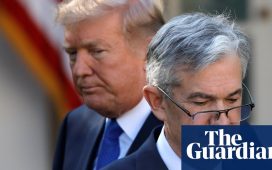Unlock the Editor’s Digest for free
Roula Khalaf, Editor of the FT, selects her favourite stories in this weekly newsletter.
Washington has warned Turkey that there will be “consequences” if the country does not curtail its exports to Russia of US military-linked hardware that is vital to Moscow’s war machine.
Matthew Axelrod, assistant commerce secretary leading US efforts to keep sensitive technology out of the hands of America’s adversaries, recently met Turkish officials and executives in Ankara and Istanbul as part of efforts to halt the illicit trade. His message, according to a senior commerce department official, was that Turkey must work harder to curb trade in American-origin chips and other parts that are pivotal for Moscow’s war in Ukraine.
“We need Turkey to help us stop the illicit flow of US technology to Russia,” Axelrod said in a statement to the Financial Times. “We need to see progress, and quickly, by Turkish authorities and industry or we will have no choice but to impose consequences on those that evade our export controls,” he added.
Washington’s warning is the latest sign of how Turkey’s decision to retain strong trade ties with Russia has tarnished relations between the two Nato allies. The US, EU and other western partners have imposed sweeping sanctions on Russia since it launched its full-scale invasion of Ukraine in 2022, but Turkey has eschewed the curbs and increased trade with the country since the war broke out.
The US is particularly worried that Turkey has become a key hub through which western-made electronics, including processors, memory cards and amplifiers, are making their way to Russian missiles and drones in contravention of export controls. Machine tools are another significant area of concern.
US Treasury under-secretary for terrorism and financial intelligence Brian Nelson expressed frustration over Turkey’s trade in military-linked goods during a visit to the country late last year.
The US, EU, UK and Japan have joined together to target trade in about 50 categories of civilian products with military applications, which the allies view as a high priority for Russia’s war in Ukraine. Turkey is the world’s second-biggest source, behind China, of high-priority, US-origin goods sent to Russia, according to the commerce department official.
Axelrod told the Turkish government that this trade was an “urgent problem”, and called on Ankara to “adopt and enforce a ban on the transshipment of US controlled items to Russia”, the official said. He added that Moscow was “trying to exploit Turkey’s trade policy” to access US parts.
The commerce department has already added 18 Turkish companies to its “entities list” over this trade; this requires American companies to acquire rare licences to sell these groups sensitive parts. The commerce official said “you can expect to see more of that going forward unless and until there is progress”.
The Treasury department has separately sanctioned numerous Turkish companies for allegedly supplying Russia’s military-industrial complex.
Turkey’s trade ministry declined to comment on the US allegations.
Turkey’s exports of high-priority military-linked goods, sent to Russia or to suspected intermediaries for Moscow such as Azerbaijan and Kazakhstan, have boomed since the war began. It registered $85mn in the first six months of this year, well above the $27mn in the same period in 2022, according to FT calculations based on Turkish customs data.
A large portion of these flows may be part of the “ghost trade” of goods that go missing and never enter the markets of the their purported destinations. The large rise in Turkish exports of sensitive goods to Azerbaijan, Kazakhstan and Kyrgyzstan has not led to a rise in imports of such goods reported in those countries.
Still, Turkey’s exports of military-linked goods appear to have eased somewhat from the highs set in 2023. The US Treasury has attributed this dip to an executive order by President Joe Biden’s administration which allows it to treat any foreign financial company transacting with a sanctioned Russian entity as though it is working directly with Russia’s military-industrial base.
The toughening stance has also sharply increased the costs Russia must pay to import US-origin goods from Turkey, according to the commerce official. He added: “There’s been some recent progress . . . but it’s not enough, because it’s still way too high.”











